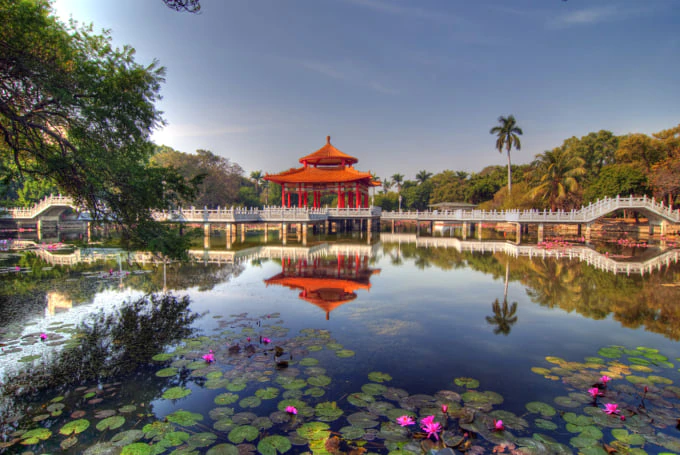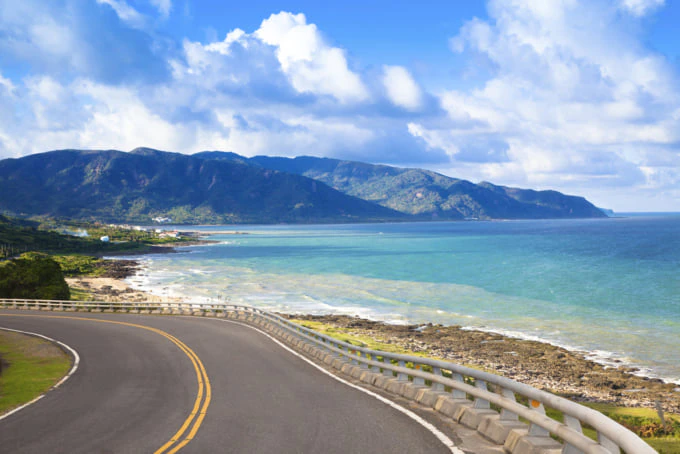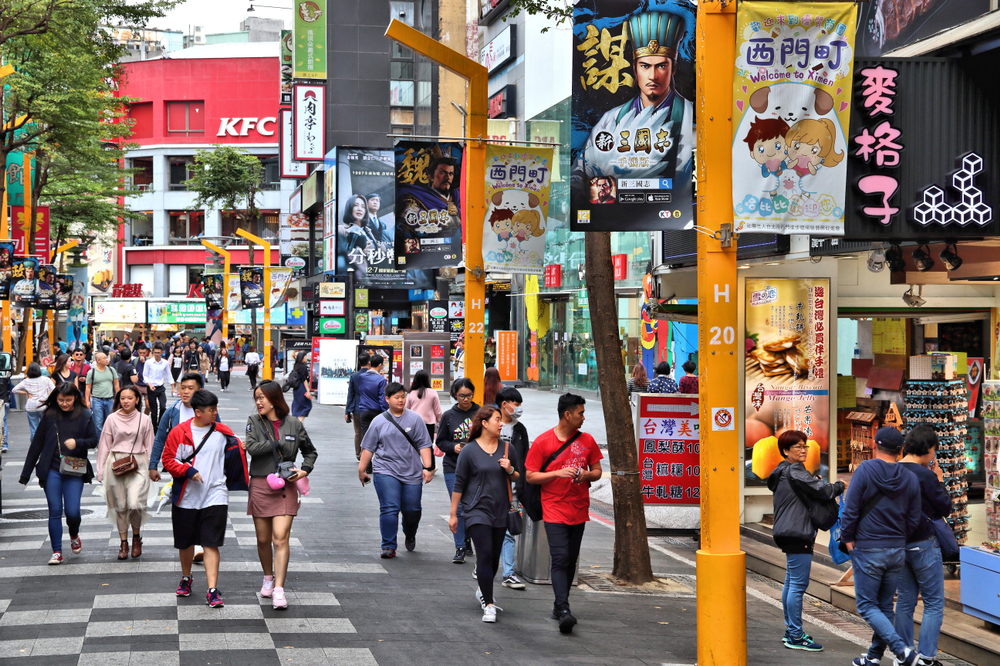Living In Taiwan As An Expat part 1 – that will be the topic of today’s article.
Before introducing this article, if you are interested in our core services which are expat financial, insurance and mortgages, you can contact me here.
The best time to consider your financial situation is when you are moving to a new country.
Introduction
When I first arrived in Taichung, one thing became abundantly clear: I’m a foreigner. No matter how long my hair is or what clothes I wear, people stop and stare when they see me walking around town. “The only way you won’t be stared at is if you’re with another foreigner,” my boss told me.

The number of expatriates who are living in Taiwan is on the rise, which is likely to create an environment where foreigners feel more comfortable about calling this island home. Informal polls showed that many expats tend to stay in Taiwanese cities like Taipei or Taichung for anywhere between three months and ten years.
The people here are mostly Taiwanese aboriginals, Han Chinese (the majority ethnicity in China), and other minorities. There is also a significant population of non-Asians, who often come for business or family reasons. Of this population, some stay in Taiwan permanently.
Living in Taiwan as an expat may be something you’d want to do for some time or on a more permanent basis. You might also be here only on vacation, but you’re looking at it from the perspective of possibly living here, right? Whether you’re here on a temporary or long-term basis, it’s worth considering the pros and cons of living in Taiwan. It might not be the right choice for everyone.
In many cases, it isn’t easy to go from being a tourist to someone who has moved permanently to another country. Have you been surfing the internet to know what moving to Taiwan in 2022 looks like? If that sounds like a yes, look no further, as we’ve got you covered here. Read further to know more!
Pros and Cons of Living in Taiwan

The island nation of Taiwan is perhaps best known for its dramatic mountain scenery, stunning beaches, and hospitable people. Located off the southeast coast of mainland China, it is a small country rich in culture and history.
It has also become an increasingly popular destination for expats looking to live abroad. However, before you pack up your bags and move to Taipei, there are a few things you should know. In this section, we will walk you through the pros and cons of living in Taiwan as an expat as of today.
Pros
Many Foreign Languages Available For Study
Many international students who come to Taiwan opt to take courses in the Chinese language because of the diverse dialects and languages spoken in Taiwan. Mandarin is the official language of Taiwan, but Taiwanese Hokkien and Hakka are also popular languages among locals.
This means it will be easy for you to find a course of study that fits your needs since there are courses available in many different languages.
Safe and Peaceful Country

Taiwan is ranked as number 17 out of 142 countries in the 2017 Global Peace Index list. This high ranking means that it is one of the safest countries to live in as a citizen and foreigner. In fact, Taiwan is ranked as the world’s safest country, with Japan coming in second after Taiwan.
However, there are some cons to the peaceful nature of Taiwan. Many Taiwanese people complain that there is almost no culture or nightlife because everyone goes home early; this makes it difficult for expats to make friends.
Rich Cultural Activities
Taiwan has a rich cultural history that many expats and travelers can take advantage of by visiting various museums, monuments, and parks. For example, the National Palace Museum houses over 700,000 Chinese artifacts in its collection; it is one of the most prominent art galleries in Asia. Many people come to Taiwan to tour the museum to see these ancient works of art.
Moreover, people can also visit various temples and famous scenic spots. However, there are some cons to this rich culture; many visitors complain about the high prices for all these activities.
Beautiful Natural Scenery
Taiwan is a small island that has a lot of natural beauty. There are many mountains and scenic spots to explore; even people in the countryside enjoy the beautiful natural views every day. Also, there is a diverse variety of flora and fauna that nature lovers can appreciate.
However, there are some negative aspects as well. The overpopulation on an island with limited space means that there is a lot of air and water pollution.

Low Cost Of Living
In general, Taiwan has a low cost of living compared to other developed countries like the USA and the UK. For example, you can buy food for an entire week for only 100-300 NT dollars (equivalent). You can also get your haircut for 40 NT dollars, assuming you are willing to wait in line for a long time.
Moreover, transportation is also cheap in Taiwan, so foreigners do not need to spend so much money traveling around the island. However, there are some pros and cons with the low cost of living in Taiwan. For example, Taiwanese people complain that everything is too cheap and that there is a lack of good quality goods and services.
Delicious Food
Taiwan is a country that prides itself on its Taiwanese cuisine. Taiwan’s dishes include soy milk, oyster omelets, stinky tofu, and bubble tea. Many Taiwanese foods are sweet or salty to add flavor to the bland taste of some of the local cuisine. But there are also many healthy options available to anyone who visits.
Religious Freedom in Taiwan
Taiwan was the first Asian country in history to recognize religious freedom in its Constitution when it went through a constitutional reform in 2005. This means that regardless of your religion, you will be able to go about your day-to-day life without fear of persecution or attack. There are no Acts or documents that target a certain religion in Taiwan.
Broad Job Market
No matter what field you are in, Taiwan will have job opportunities. Many people work in the service industry, but there are many opportunities to be a writer or researcher at universities. It is easy for foreigners to find jobs in teaching English because of the large number of people who want to learn English. The Taiwanese government has even begun funding “The 100,000 Strong Initiative,” which grants universities with higher education programs in teaching English.
Cons

Taiwan, a beautiful country located in the Pacific Ocean, is known for its hospitable people and delicious food. However, not everything about this country is perfect. Here are five cons of living in Taiwan as an expat.
Plastic Surgery Advertisements
Taiwan has always been quite liberal when it comes to beauty standards. This might seem like a positive thing, but it can be a bit overwhelming for people who aren’t used to it. Plastic surgery is also quite common here, emphasizing this beauty standard even more.
Earthquakes
Taiwan is located in one of the most earthquake-prone zones globally, and these natural disasters frequently occur – especially in the southern part of Taiwan. Since these earthquakes can be quite destructive, living in a house or apartment that is not earthquake-proof will put you at risk of injury and damage to your property.
Mandarin
Mandarin is the official language of Taiwan, but Taiwanese also has its own dialect, which many locals speak with each other. The benefit of learning Mandarin is that you will communicate with most locals who only speak Mandarin. However, the downside of learning Mandarin is that people will assume that you can’t understand Taiwanese, making them talk about you behind your back.
The Food
Taiwanese cuisine is tasty and unique; however, it might not be what everybody is used to. The biggest issue with Taiwanese food is its basis in meat; Taiwanese cuisine has very few vegetarian dishes. Also, since Taiwanese people like their food spicy, it might be quite difficult to find food that suits your tastes during the first few months after moving here.
Isolation
If you are single and looking for a company, chances are you will have a hard time finding what you are looking for. This is because Taiwan is generally an unfriendly place for people who don’t speak Mandarin Chinese to find love, friendship, or even just conversation. This also means that if you do not have many friends here, it might be hard to make them – especially since Taiwanese people are more homogeneous than other societies.


